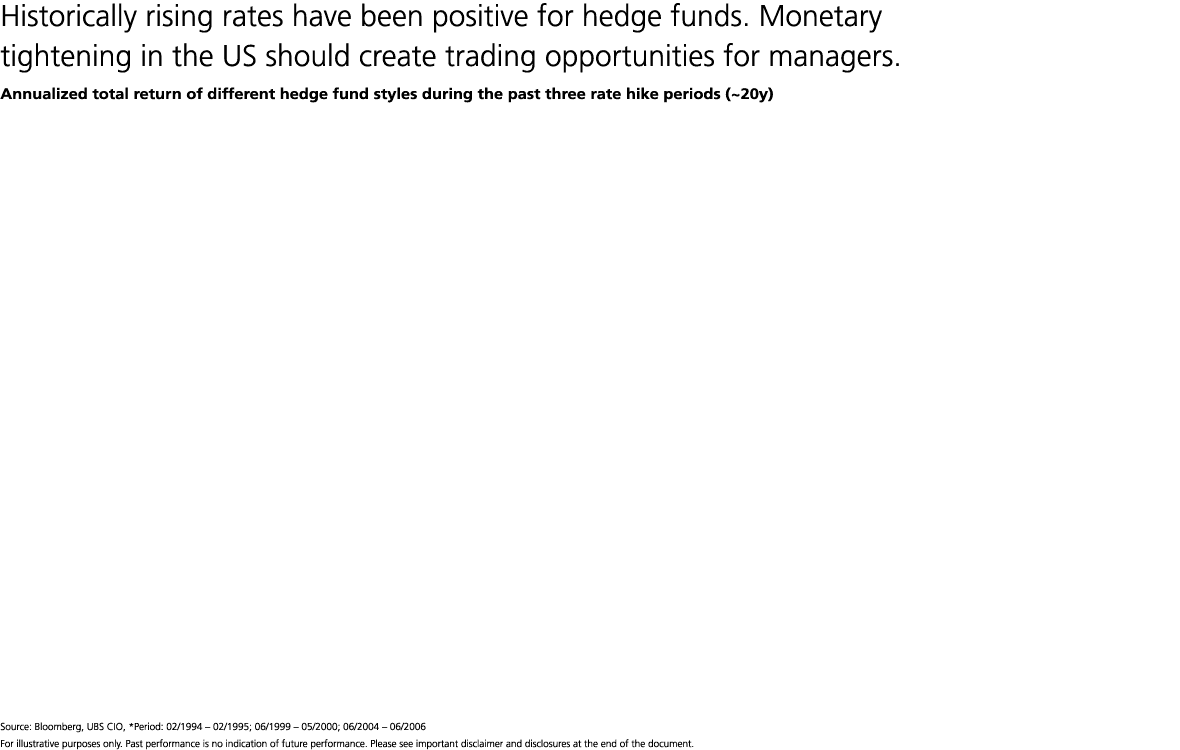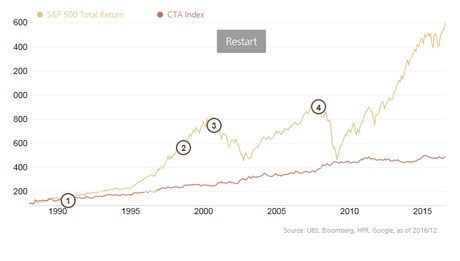Three reasons to consider hedge funds now
Preparing for a changing context
05 January 2018

Get investment news directly in your inbox.
Get investment news directly in your inbox.
2017 was a good year for the global economy and global equities, and in 2018, we expect equities to make further gains. But shifts in monetary policy, correlations and more broadly, a maturing economic cycle, mean that investors need to adapt to a changing investment context. This will require a combination of a more agile approach to investing, a diversified portfolio, and a discipline to focus on the long-term to avoid common investing pitfalls. Here is why, in this context, hedge funds can help your portfolio.
Hedge funds benefit from rising rates
Monetary policy normalization will remain a focal point for 2018. With global growth expanding at its fastest pace in six years, central bankers will likely continue to view the economy as strong enough to withstand stimulus withdrawal and higher interest rates. However, not all asset classes perform the same under these scenarios. Based on historical data, we find that hedge funds are fairly resilient to rising rates - on an absolute return basis, hedge funds have typically outperformed most other asset classes, with fixed income performing worst of all.

2018 is unlikely to be easy for investors and while we do not see cause for alarm, we acknowledge that changing market conditions call for action. We believe hedge funds will play an increasing role in multi-asset class portfolios. Depending on their profile, we advise under-allocated investors to revisit their investment strategy and consider an allocation to hedge funds with a focus on being well-diversified across strategies, managers and regions.

